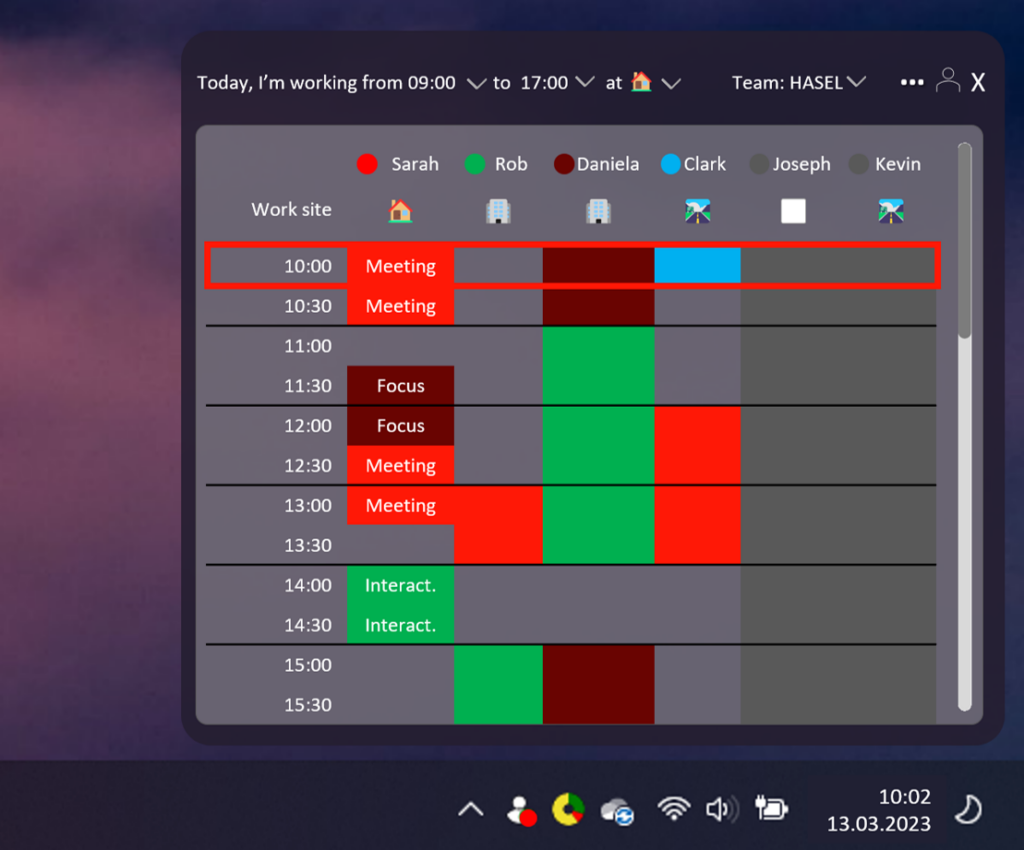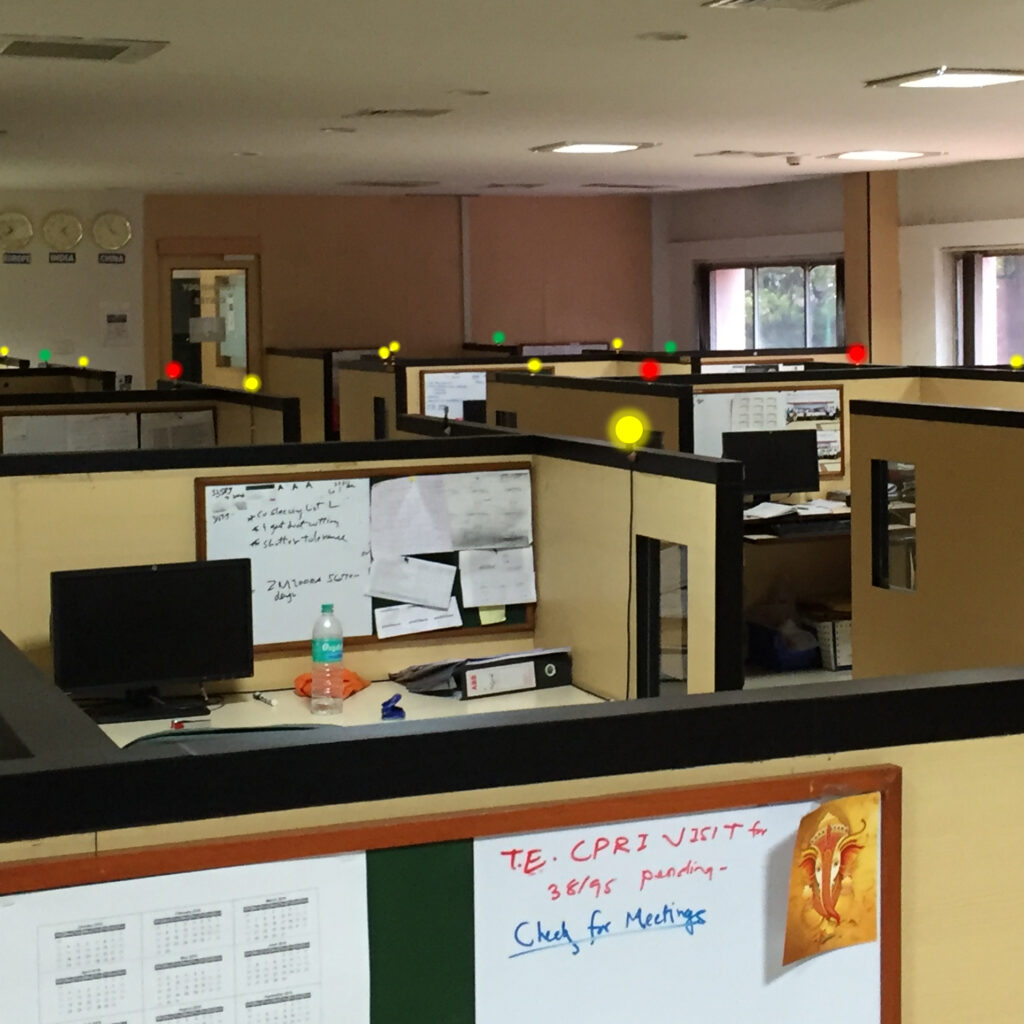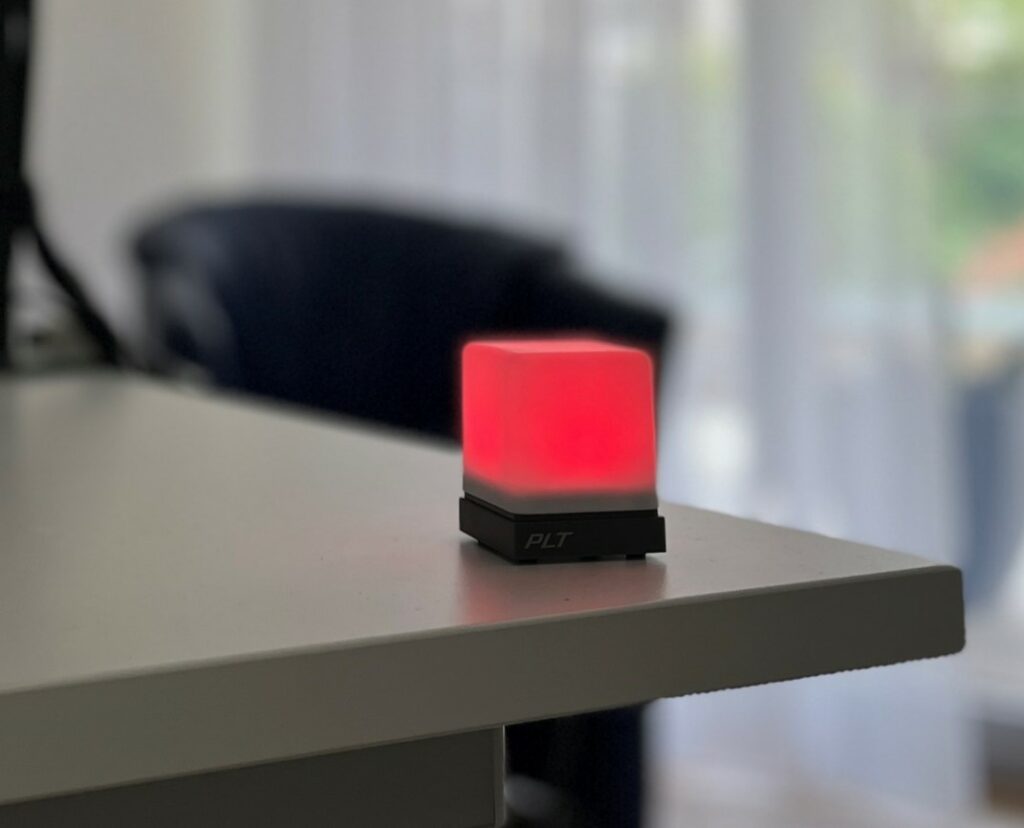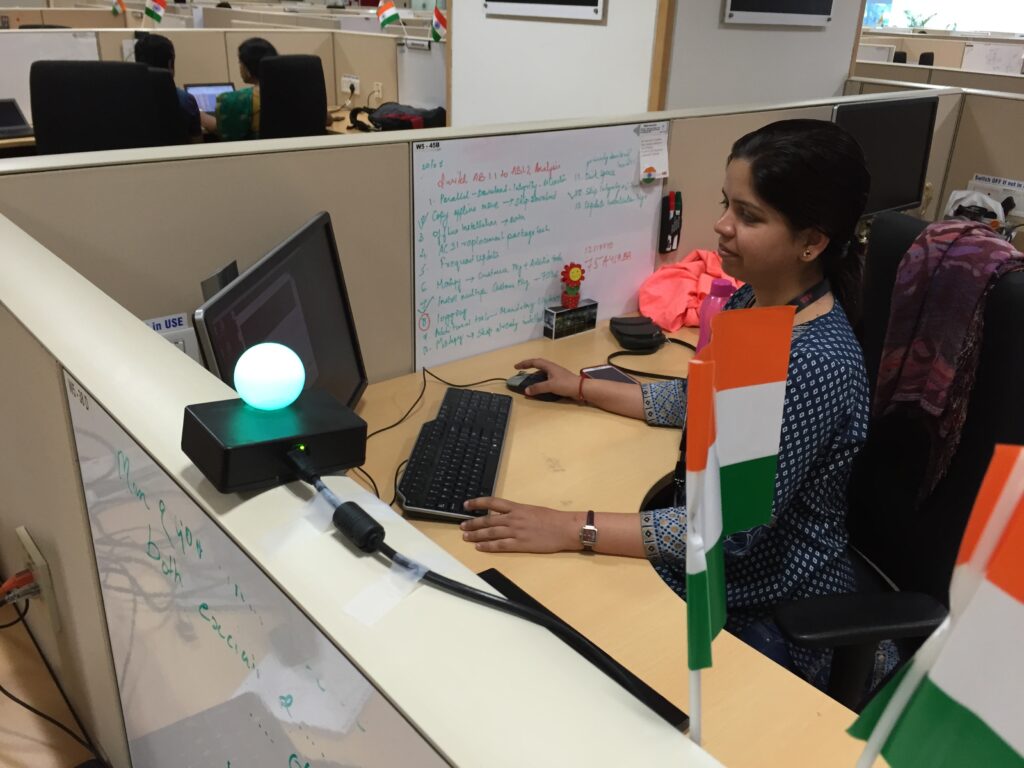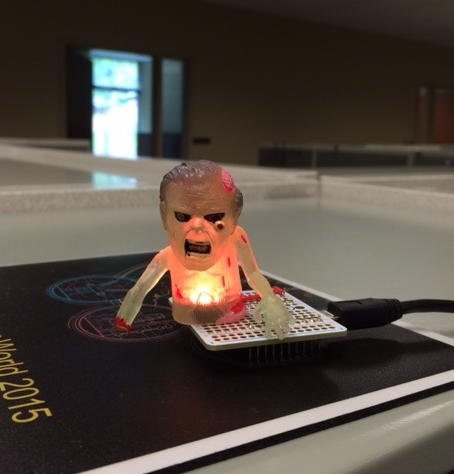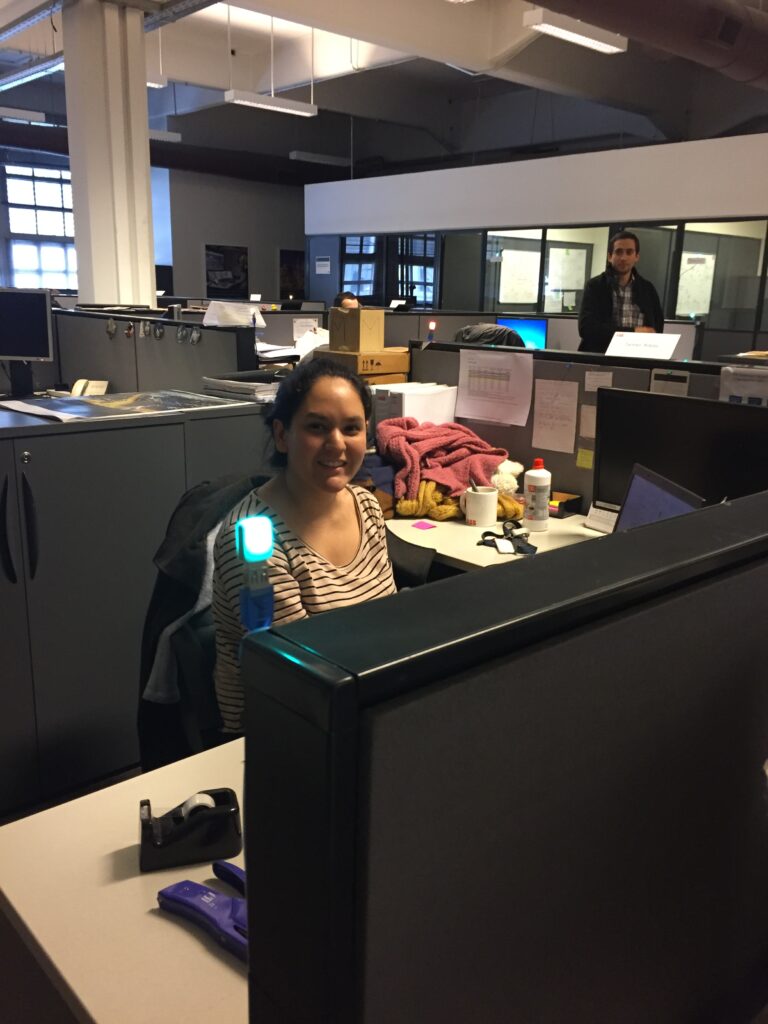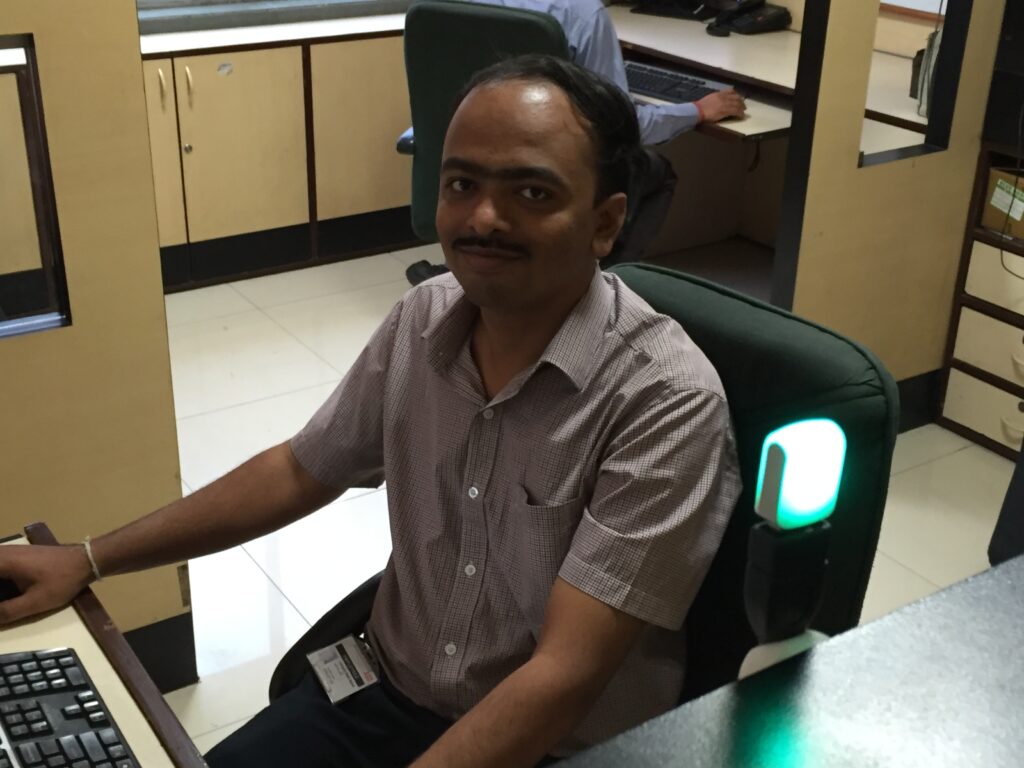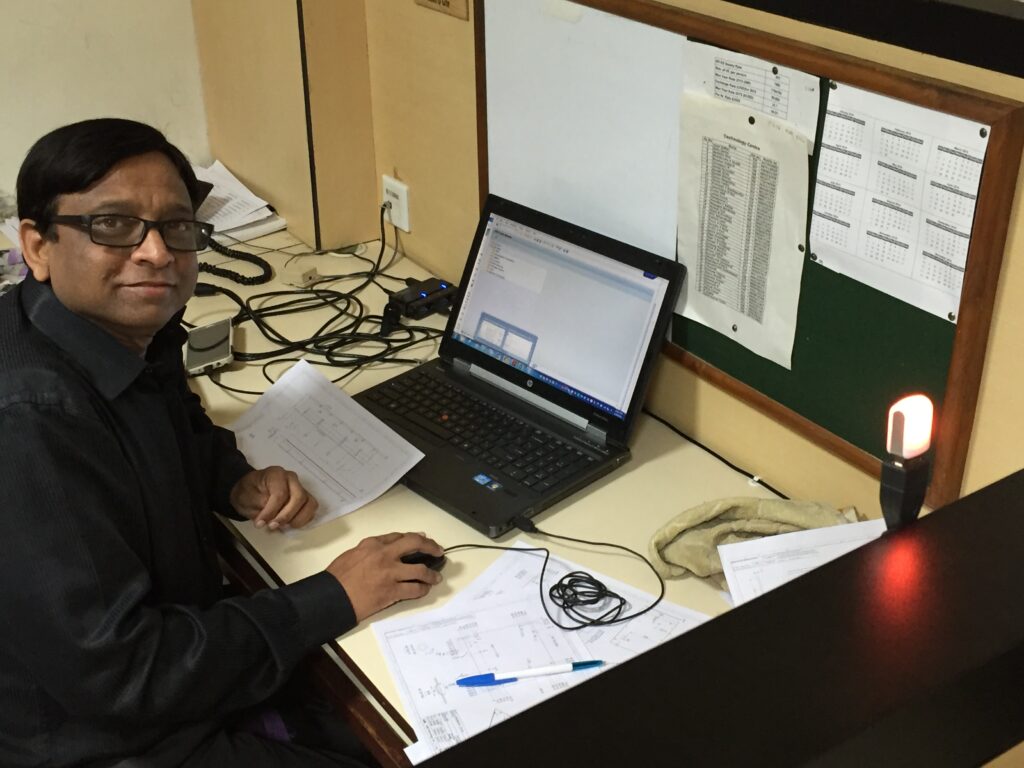FlowLight & FlowTeams – Fostering Productive Work in Hybrid Workplaces
FlowLight: Fostering Deep Work and improving Wellbeing through an Ambient Display
In today’s collaborative work environments, knowledge workers experience frequent interruptions from their co-workers, either in-person at the office or through online channels, such as email, chat and video calls. In our previous work, we’ve studied interruptions and their impact on productivity, and developed a research prototype, the FlowLight, which combines a physical traffic-light like LED with an automatic interruptibility measure based on computer interaction data. A large-scale and long-term field study showed, amongst other results, that it reduced 46% of interruptions at work, and workers’ awareness about the disruptiveness and cost of interruptions at work. The recent trends towards hybrid workplace scenarios induced further challenges on workers to find a balance between focused deep work and collaboration. We are now aiming to adapt the FlowLight to today’s hybrid workplace scenarios and make it available to the public. To that purpose we are looking for implementation and study partners.
FlowTeams: Fostering Focused Work and Collaboration in Hybrid Teams
One of the main challenges that knowledge workers are facing at work is to find a balance between making progress on their own tasks and collaborating with / supporting co-workers in their team. The nature of collaborative work is causing interruptions which can reduce focus and productivity, especially when these happen at in-opportune moments. The challenge, however, is that in today’s hybrid/remote work, it’s difficult for teams to know who is currently very focused on their work (where an interruption is particularly intrusive) and who is open/available for an interaction. The aim of this project is to study if a team awareness tool that makes co-workers’ current and upcoming focus and interruptibility available is helpful for organizing one’s workday to better balance focused personal work and interactions with co-workers.

Learn more about FlowLabs here.
News:
- 2024/12: Acceptance of our newest paper on Better Balancing Focused Work and Collaboration in Hybrid Teams by Cultivating the Sharing of Work Schedules
- 2024/10: We’ve launched FlowLabs!
- 2024/05: FlowLabs is featured in the Abraxas Magazine.
- 2023/12: We were just awarded the DIZH Founder Grant, in which we can continue working on (productizing) FlowTeams in 2024!
- 2023/08: We’ve just concluded our first field study on the FlowLight with ~50 participants. Results will be published in the future.
- 2023/06: We were recently invited to write an article (in German) on Inside IT on new work and how teams can be supported to balance focused work and teamwork.
- 2023/05: The FlowTeams study is progressing well, with more than 60 knowledge workers participating, and more joining soon.
- 2023/02: We’re looking for teams who are interested in helping us evaluate our newest FlowTeams solution for hybrid teams! Learn more here.
- 2022/07: We’re onboarding a research developer to support the productification of FlowLight.
- 2022/05: We’re looking for a (student) research developer to support us in productizing the FlowLight!
- 2022/05: FlowLight was mentioned as a useful tool for organizing work in a team by UZH News!
- 2022/04: Five master students will work on experimental features related to the FlowLight as their master project during this summer.
- 2022/03: We are looking for students to work on a Master Project.
- 2022/02: We were recently awarded a rapid action research grant by the DIZH.
Contributors
- Hundreds of Organizations and Individuals who participated in our field studies
- Sebastian Richner, Remy Egloff und Dario Bugmann as developers
Funding Partners


In the Media
FlowTeams: Our work was featured on Inside IT, UZH News, and DIZH.
FlowLight: Our work was also featured on The Telegraph, Wall Street Journal, GeekWire, NBC News, New Atlas, DigitalTrends, Business Standard, The New Yorker, New Scientist, TechXplore, MailOnline/DailyMail, ScienceDaily, The Times (UK), News For Everyone, rework.fm (Podcast), TheLadders, Evening Express, Yahoo News, India Today, PPP Focus, The Statesman, Radio Canada, LiveAtPC, Cantech Letter, Business Standard, Engineering 360, New Atlas, BT, Telengana Today, Le Matin (French), 20min.ch (German), Radio Energy (German), Die Presse (German), PresseText (German), Tages-Anzeiger (German), Abraxas Magazine (German), CnBeta (Chinese), PopMech (Russian), PcNews (Russian), Teknikan Maailma (Finnish), Utusan (Malaysian), Irish Examiner, Knowridge, CKNW Radio, Thrive Global, Tech.Rizlys, Appsforpcdaily.com, EurekAlert, Lancashire Post, MetroNews, user-experience-blog (DE), Corriere della Sierra (Spanish), Breaking News, UZH News, UBC News, UBC Science, Sydöstran (Swedish), svt nyheter (Swedish), Sveriges Radio (Swedish) and many other blogs.
FlowTeams Data Privacy
Information about collected data, data storage and confidentiality can be provided upon request by Dr. André Meyer. In addition, a link to FlowTeams’ privacy policy can be found here.
